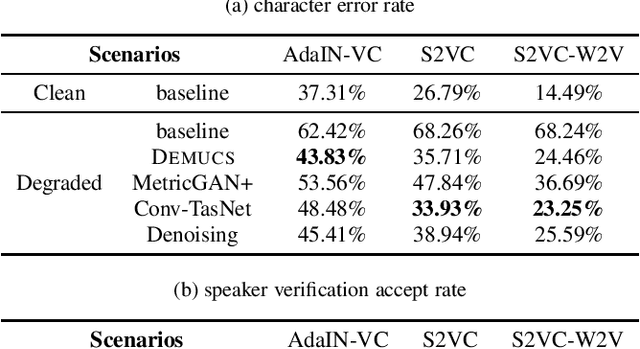Toward Degradation-Robust Voice Conversion
Paper and Code
Oct 14, 2021



Any-to-any voice conversion technologies convert the vocal timbre of an utterance to any speaker even unseen during training. Although there have been several state-of-the-art any-to-any voice conversion models, they were all based on clean utterances to convert successfully. However, in real-world scenarios, it is difficult to collect clean utterances of a speaker, and they are usually degraded by noises or reverberations. It thus becomes highly desired to understand how these degradations affect voice conversion and build a degradation-robust model. We report in this paper the first comprehensive study on the degradation robustness of any-to-any voice conversion. We show that the performance of state-of-the-art models nowadays was severely hampered given degraded utterances. To this end, we then propose speech enhancement concatenation and denoising training to improve the robustness. In addition to common degradations, we also consider adversarial noises, which alter the model output significantly yet are human-imperceptible. It was shown that both concatenations with off-the-shelf speech enhancement models and denoising training on voice conversion models could improve the robustness, while each of them had pros and cons.
 Add to Chrome
Add to Chrome Add to Firefox
Add to Firefox Add to Edge
Add to Edge